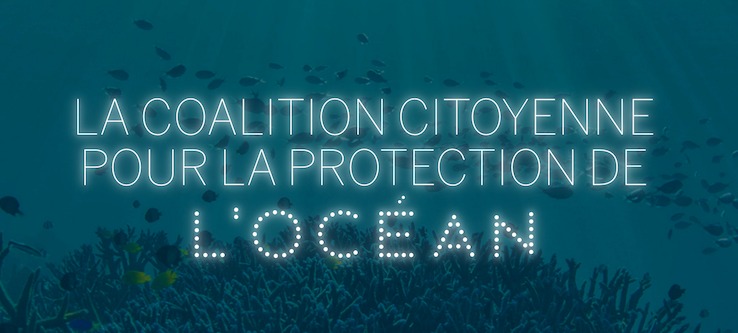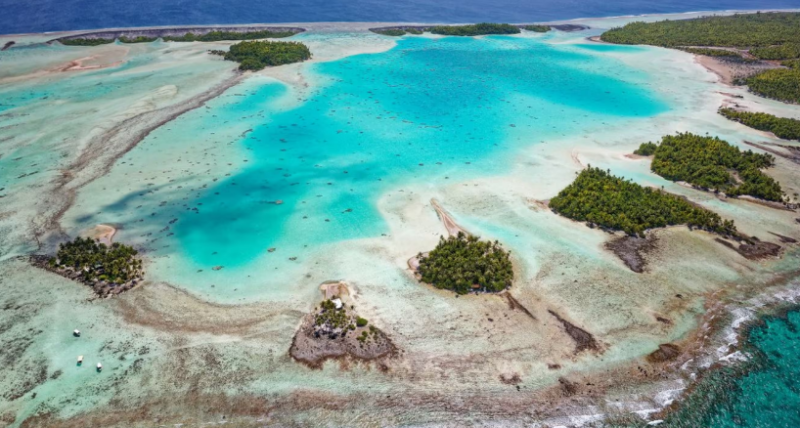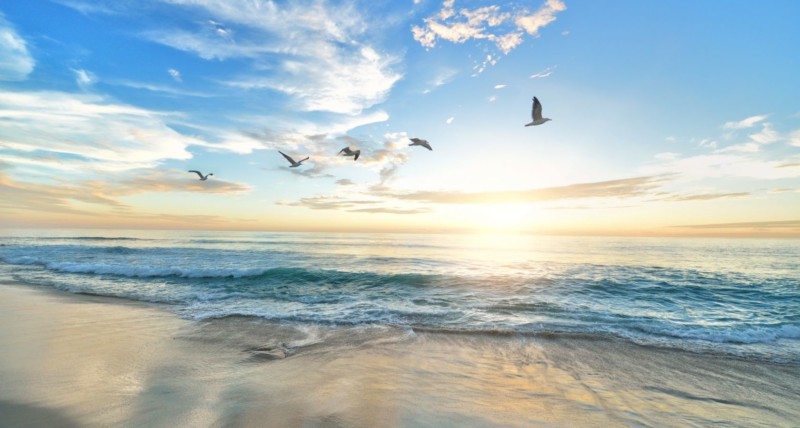Humanity, representing only 0.01% of the planet’s living biomass, has managed to alter its environment to the point of threatening the collapse of the largest wilderness on Earth, which harbors 98% of the Earth’s water and upon which our survival directly depends: the ocean.
The ocean is the primary regulator of the climate. The vast bodies of water within the ocean ensure a crucial distribution of heat and moisture on a planetary scale. Without it, the Earth’s surface temperature would be suffocating and unsuitable for human life.
The ocean was our cradle; life blossomed within it. Yet, we are turning it into our grave.
When the ocean overheats, the ocean currents that regulate the climate are altered, causing major disruptions in the water cycle leading to chronic droughts or torrential rains, increased frequency and intensity of climate events, exponential growth in marine heatwaves, starvation among whales, sea level rise due to water expansion and ice melt—raising sea levels by almost half a centimeter per year…
« We are witnessing the collapse of the oceans in real-time, » notes researcher Olivier Adam (Sorbonne/CNRS), who emphasizes that at the current rate, « there is no reason for there to be whales in the oceans within forty to fifty years. »
Simultaneously, the largest ocean current, the Atlantic Meridional Overturning Circulation (AMOC) including the Gulf Stream, has been declining inexorably by 15% since 1950. Recent publications estimate that this ocean current could reach a tipping point within a few years, fundamentally altering global weather patterns and potentially causing abrupt changes, making adaptation by human societies very difficult. Western Europe would be particularly affected by a significant decrease in rainfall, while the rest of the world would suffer under unbearable warming, plunging human lives and food systems into chaos.
UNESCO has warned that the ocean could soon emit more carbon than it absorbs.
It’s staggering. We are turning our greatest ally into our worst enemy.
The ocean is becoming a ticking time bomb for humanity.
Climate change is occurring at a time when the oceans are already suffering from industrial fishing. Just when we need healthy ecosystems more than ever to effectively absorb and mitigate climate change, policymakers continue to support ocean destruction by funding, with our taxes, underwater bulldozers that catch fish by pulverizing everything around them: trawling.
Trawling generates permanent underwater deforestation.
Over decades, we have ground up the underwater forests created by marine organisms on the ocean floor. With one hand, we have used the ocean as a dumping ground and polluted ecosystems even in the deepest ocean depths; with the other, we have systematically siphoned its resources. Large marine animals like tuna and sharks have declined by over 90% globally. In the North Sea, fish populations have dropped by more than 99% since 1900. We have lost biodiversity, animal abundance, and with them, a significant portion of the ocean’s carbon pump.
We have depleted the ocean.
Each year, the passage of immense trawl nets by French trawlers impacts an area equivalent to 600,000 km2—more than the entire country of France. Such devastation on land would be intolerable. Moreover, every year, destructive fishing methods like trawling receive massive public subsidies, amounting to at least 300 million euros in France.
Without public assistance, this energy-intensive and climate-damaging fishing method would disappear.
The oceans could breathe again, marine life could repopulate, artisanal fishermen would not have their fishing gear torn apart by these sea bulldozers, and the ocean could continue to regulate the global climate.
Let’s stop hammering the ocean. Marine life is resilient if given the chance to recover. Protecting the ocean isn’t so complicated: we just need to stop destroying it. When a marine area is genuinely protected, fish abundance can increase by up to 670% in just a few years. Yet, France continues to permit high-impact fishing methods like trawling in so-called « protected » areas that fall short of international protection standards. Currently, « French-style protection » only shields the interests of industrial lobbies and trawler fleets, with fuel costs and ecological impacts footed by taxpayers. This situation is untenable.
Emmanuel Macron was wise to declare 2024 the « Year of the Sea. » Indeed, our future revolves around the ocean. This is an opportunity to radically change France’s ocean policy and adopt a strong, sincere, and rational ecological and social ambition that would yield benefits across the board: public finances, climate performance, ecological restoration, and employment. Instead of being criticized for environmental hypocrisy, France could in 2024 invent a virtuous model that turns away from industrial fleets dependent on public subsidies and destructive of common goods, in favor of a largely protected coastline reserved for artisanal and coastal fishermen, whose professions are three times more job-generating and three to four times more profitable. A model combining protection and socio-ecological transition could make France proud and set a global standard ahead of the third United Nations Ocean Conference in Nice in June 2025. As the world’s second-largest maritime power, tied with the United States, France must shoulder this responsibility before the international community.
2024 must be the year France renounces ocean destruction.
The citizen coalition for ocean protection that we are launching today with 231 NGOs, movements, collectives, foundations, businesses, and committed individuals will relentlessly pursue this ambition in 2024. The maritime rank of France in the world demands it.




